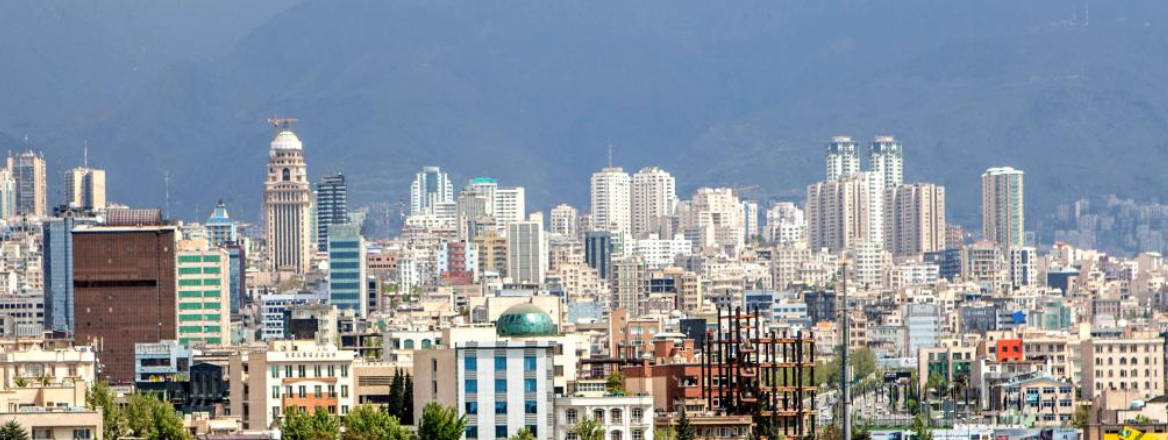Judgement Postponed: The Financial Action Task Force Extends Iran’s Lifeline
Mixed messages from the Financial Action Task Force’s latest plenary are unlikely to enhance Iran’s access to banking.
In recent years, the Financial Action Task Force (FATF), the global standard setter for anti-money laundering and counterterrorist finance (AML/CTF), has been increasingly deployed as a response to global threats. Barely a high-level summit passes without FATF being called upon to react to terrorist financing, financial inclusion, human trafficking and scandals such as the Panama Papers. For policymakers, FATF has become a sort of figurative ‘sonic screwdriver' – the tool to which Dr Who turns to deal with the toughest of challenges – as they seek to strengthen the integrity of the financial system.
Perhaps the toughest of all challenges FATF has taken on thus far is seeking to foster conditions that encourage international financial institutions to re-engage with Iran following the lifting of nuclear-related sanctions in January 2016. In June last year, FATF entered into the spirit of the Joint Comprehensive Plan of Action (JCPOA) agreed between Iran and the five permanent members of the UN Security Council plus Germany (the P5+1). The JCPOA endeavoured to grant economic benefits to Iran in return for the suspension, control and monitoring of its nuclear programme by reintegrating its economy into the global financial system via the lifting of sanctions. Restoring banking relations – severed for many years by the previous sanctions regimes – is critical to Iran securing a tangible financial dividend in return for its respect of the JCPOA provisions.
Since Implementation Day on 16 January last year, the challenge of re-establishing these ties has been evident as banks, particularly the large global banks that facilitate international trade, have resisted political pressure to reintegrate Iran fully into the international financial system by providing financing and payment services to those international companies wishing to trade with the formerly sanctioned state.
While sanctions were clearly the major impediment to Iran’s economic activity, other barriers to reintegration remained, including the ‘outdated’ nature of the governance and standards of Iran’s banks. But perhaps the most significant hurdle faced by Tehran was its standing with FATF, an organisation that continued to include Iran on its blacklist alongside North Korea. FATF’s Public Statement following its February 2016 plenary noted that it remained ‘particularly and exceptionally concerned about Iran’s failure to address the risk of terrorist financing and the serious threat this poses to the integrity of the international financial system’. Irrespective of whether Iran is sanctioned, no credible financial institution would choose to deal with a country with such a record. As the International Monetary Fund had noted in December 2015 shortly before Implementation Day, bolstering the country’s AML/CTF framework would ‘facilitate the re-integration of the domestic financial system into the global economy’.
Nevertheless, and moving beyond its traditional technical work of raising standards and assessing effective implementation around the world, FATF chose in June last year to suspend ‘counter-measures’ – for example the need to conduct additional in-depth due diligence, limiting business relationships or prohibiting the establishment of financial subsidiaries in the country in question – against Iran for twelve months despite AML/CTF deficiencies including continued concerns about terrorist financing risks emanating from the country. For some, this action was consistent with the spirit of the JCPOA; for others, it was a politically motivated move from a task force that should, at all costs, remain apolitical and objective in its efforts to maintain the integrity of the financial system.
Still, at the latest plenary meeting FATF decided that ‘In light of Iran’s demonstration of its political commitment and the relevant steps it has taken in line with its Action Plan [it will] continue the suspension of counter-measures’. Yet despite these encouraging words, Iran’s actions have not been sufficient to remove it from the blacklist alongside North Korea. Could FATF have done otherwise? Moving Iran off the blacklist while FATF remained ‘concerned with the terrorist financing risk emanating from Iran and the threat this poses to the international financial system’ would have made a mockery of FATF’s system. But, conversely, recommending the reimposition of countermeasures would have confirmed the suspicions of those in Tehran who criticise Iranian President Hassan Rouhani’s government’s engagement with FATF. One can only imagine how President Donald Trump would have exploited such a decision to support his hard-line rhetoric against Tehran; the perceived ‘snapback’ of sanctions, FATF-style, is surely something the US president would have applauded.
So, where does this leave the prospect of further financial sector integration for the Iranian economy? FATF has wisely removed the time limit it applied in June last year on progress it expects Iran to make, an unhelpful deadline that only encouraged financial institutions to adopt a ‘wait and see’ attitude to re-engagement with Iran and therefore served no constructive purpose. Still, the enduring double-speak in FATF’s recent statement seems unlikely to enhance Iran’s access to the international financial system. It is hard to overlook the strong warnings FATF continues to make to states ‘to advise their financial institutions to apply enhanced due diligence to business relationships and transactions’ with Iran given the ongoing deficiencies in its AML/CTF framework.
Any progress that Iran has made in improving the integrity of its financial system is to be welcomed. However, against a background of combative messages from Washington, continued concern of banks that they may inadvertently fall foul of remaining non-nuclear-related sanctions, the ongoing and largely unhelpful Iranian involvement in Syria and Tehran’s decision to take sides in the current spat between Qatar and its neighbours, it seems doubtful that FATF’s latest announcement will make any difference to the caution displayed by banks worldwide when faced with Iranian business opportunities.
WRITTEN BY
Tom Keatinge
Director, CFS
Centre for Finance and Security


